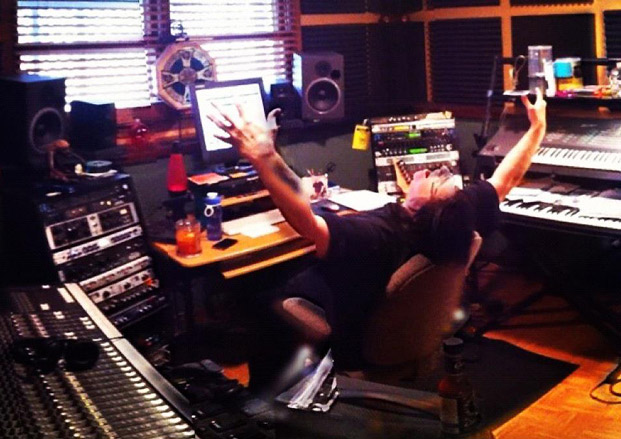If You Want to Be a Session Guitarist, Read This First

Have you ever considered how the life of a session guitarist has evolved? Or devolved?
You should. Especially if you are hoping to make this your career.
Here's a very broad generalization.
Original session guys would carry a guitar or two, go to the studio where the session was booked, play and run to the next. We're talking Forties and Fifties and very jazz-based music.
The next generation of session guitarists became very much like a gang in the Sixties and Seventies. More guitars were brought to sessions. Sometimes the special effect of the day was required—fuzz, trem, reverb/echo, etc. The basics.
The instruments changed a bit with electric 12 strings and baritone guitars. These were the beginnings of superstar players from the Wrecking Crew and Muscle Shoals to the hitmakers of Motown. Late-Seventies and Eighties technology ruled the day.
Rack upon rack of truly expensive studio gear was carted from studio to studio. Guitars were hot rodded like early dragsters and the investment in pedalboards to amps was beyond the budget of only the truly busy. Sound was as important as technical ability and sight-reading chops.
All the latest guitar news, interviews, lessons, reviews, deals and more, direct to your inbox!
The Nineties saw the digital age begin to rear its head walk on the beach. Smaller all-in-one effects and smaller amps joined forces with a retro appreciation of older instruments. The vintage guitar craze sent guitar prices soaring while these cherished instruments were often plugged into less-than-stellar amps and early modelers. Change always has its growing pains.
Now here we are, well into the 21st century. Most gear is not carried. A studio guitarist owns his or her own studio, literally. It's software based, with plugins, rack-based effects and stompboxes, plus old and new amps and effects and a collection of instruments.
Not only do we need to play guitar; we also need to have than a small degree of engineering chops. We own a small but mighty microphone collection, preamps and compressors, converters. Our studio is part of our package and most definitely a part of the sound. The clock we are on is our own. Speed equals dollars, but the responsibilities are greater than just laying down a part and leaving. What once took the time it took to play the part now involves a plethora of extra tasks.
Digital does not mean faster or easier. We setup, download, upload, review and discuss, lay down multiple tracks using gear from all time periods, send mp3's for review, clean up tracks, organize, gather, backup, create end-to-end files and upload and mail. And if you're like me (and many people are), you also add other instruments and vocals to any number of projects every day, repeating all the necessary safety and organization requirements to stay on top of the madness.
You'll be holding a mouse more than a guitar, that is certain. And you do it alone, often for weeks at a time.
Buying gear and budgeting toward upgrades is a constant concern. I just went through a serious investment in pedals—$2,500. My next investment is in upgrading my entire recording section of my studio. That was close to $5,000. Computer, software, effects and visual monitors; it's all part of the job. Actually, it's the price you pay to have the job!
Other prices aren't so easily seen. These include finding time to practice, exercise, sleep, clean, have relationships and satisfy your own creative needs after playing basic chords on a seemingly endless supply of less-than-stellar songs.
Where will the next decade take us? I have a few thoughts. However, I really miss the old days. Walk in, say hi and hear the jokes and stories. Play my part and leave it in the hands of the engineers and producer. Laugh a bit more and go to the next session. Those are rare for me—but it's still the norm for a few.
So, do you still want to be a session guitarist? Good. I'll do my best to help.
Ron Zabrocki on Ron Zabrocki: I’m a session guitarist from New York, now living in Connecticut. I started playing at age 6, sight reading right off the bat. That’s how I was taught, so I just believed everyone started that way! I could pretty much sight read anything within a few years, and that aided me in becoming a session guy later in life. I took lessons from anyone I could and was fortunate enough to have some wonderful instructors, including John Scofield, Joe Pass and Alan DeMausse. I’ve played many jingle sessions, and even now I not only play them but have written a few. I’ve “ghosted” for a few people that shall remain nameless, but they get the credit and I got the money! I’ve played sessions in every style, from pop to jazz.
![B.B. King [left] cups his hands to his ear as he asks the crowd for more. Joe Bonamassa, with a Les Paul, gives his crowd a thumbs up](https://cdn.mos.cms.futurecdn.net/P3XrQLh86C27JfPp4AGp6n.jpg)